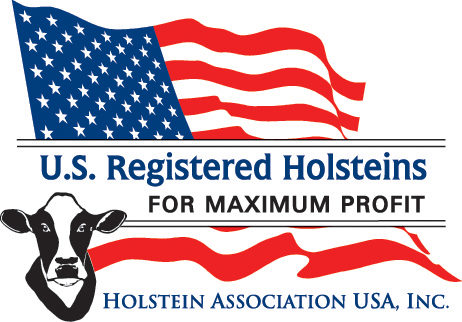Every summer, photos and videos of cute calves, Jerseys with their tongues out and tall glasses of milk cover social media feeds as we celebrate June Dairy Month. Farm tours, ice cream parties and other events promoting dairy will also be hosted (many virtually, this year). As farms, companies, organizations and stores share their love of dairy, we hope to have positive conversations with the public about dairy farming, animal welfare, nutrition and sustainability, but we must also prepare for the negative attention we will undoubtedly receive from animal welfare activists.
There are various types of engagement we can expect on #JuneDairyMonth social media posts. Most people will share our love of dairy, dropping emojis and positive comments on our posts. Others will be curious and ask questions about what cows eat, the milking process and the difference between 1% and 2% milk. And, then some will ask tougher questions – why are calves separated from their mothers, why aren’t the cows in a pasture or what happens to male calves? It is important to acknowledge the positive comments, but it is arguably more important to answer the tough questions and know how to address contentious issues.
To set yourself up for successful engagement, using the listen and respond model is critical. Here are the four steps:
- Listen to understand. Listening is probably the hardest step because we are often so eager to share, but making an effort to understand the commenter’s point of view and using their prior knowledge to help inform our response can go a long way.
- Find the shared value. Ask questions to show interest and to make sure you really understand what concerns the person has, even if those concerns are not the same as your own. Lead with your values and make a connection based on a value you can agree on, such as animal welfare, food safety, environmental impact or healthy food.
- Ask their permission to share more and remember to be friendly and relatable.
- Share your perspective and the science. If you don’t know the answer to their question, don’t fake it. Direct the person to another person or resource who does know the answer.
Throughout this process, if you determine the person posing the question is an animal welfare activist with no intention of having a civil dialogue with you, use the two-responses rule – respond to the person twice before ending the engagement. Focus your attention on the people who are interested in learning more about dairy farming.
To learn more about online engagement and being an outspoken advocate for agriculture, farmers, ranchers and practicing veterinarians should fill out the interest form for the Animal Agriculture Alliance’s Animal Ag Allies program.
Now that you are ready to have online conversations, you also need to consider the attention your farm, company, organization or store might receive in person. As warm weather approaches and COVID-19 vaccination rates increase, we should expect animal welfare activists to hold more protests and demonstrations. Just this past February, some activists stood outside dairy farms with flowers for Valentine’s Day. Other activist groups “highlighted” dairy farms on social media for anti-Februdairy campaigns. Here are some security recommendations to prepare for potential activist activity during June Dairy Month and to stay vigilant year-round:
- Talk seriously with your local police/fire/emergency departments now. Get to know the people whose job it is to protect you, your loved ones and your property.
- Watch for warning signs that you may be a target. General patterns include an increase in requests for animal specific information or on-farm tours; calls or letters questioning or criticizing your business or particular practices; harassing calls or letters; an increase in media attention to issues relating to your specific industry; and unusual interest in gaining employment, especially in roles involving animal handling.
- Now is when animal welfare activists will be trying to get hired on farms so they can attempt to help an animal rights group release video footage during June Dairy Month that portrays the dairy community in a negative light. Thoroughly screen all job applicants and take the time to check all references.
- Watch for unusual behavior by new employees or workers who have no reason to be in the facility past their regular shift. Use seasoned employees to be your “eyes and ears” for anything unusual and have them report suspicious behavior to you.
- Evaluate every request for information about your operation, even the most routine. Don’t fall prey to false praise – never agree to a suspicious request until you have verified its validity.
- Ensure access to the facility is controlled. Establish check-in procedures for visitors. Place appropriate signs noting such procedures and require visitors to sign in and out upon entering and leaving your facility. Use visitor identification badges – even the stick-on kind is better than nothing.
- Escort visitors at all times through your facility. Employees should be instructed to report all unescorted visitors to the appropriate management and security personnel immediately.
- Maintain basic security. Lock office doors and file cabinets, have firewalls installed on your computer systems and maintain separate business and personal computers. Keep all animal health products under lock and key, use security lighting and/or alarms and maintain fencing and gates. Also, post signs indicating restricted areas and no trespassing.
For more information about online engagement and farm and facility security to prepare for June Dairy Month, visit the Animal Agriculture Alliance website.
While activist activity is a real threat and concern, it should not deter the animal agriculture community from celebrating dairy and sharing positive information for June Dairy Month. Remember to focus on the people who want to have a conversation with you about dairy, but be prepared for attention from those who believe dairy farming shouldn’t exist no matter how well cows are treated.





